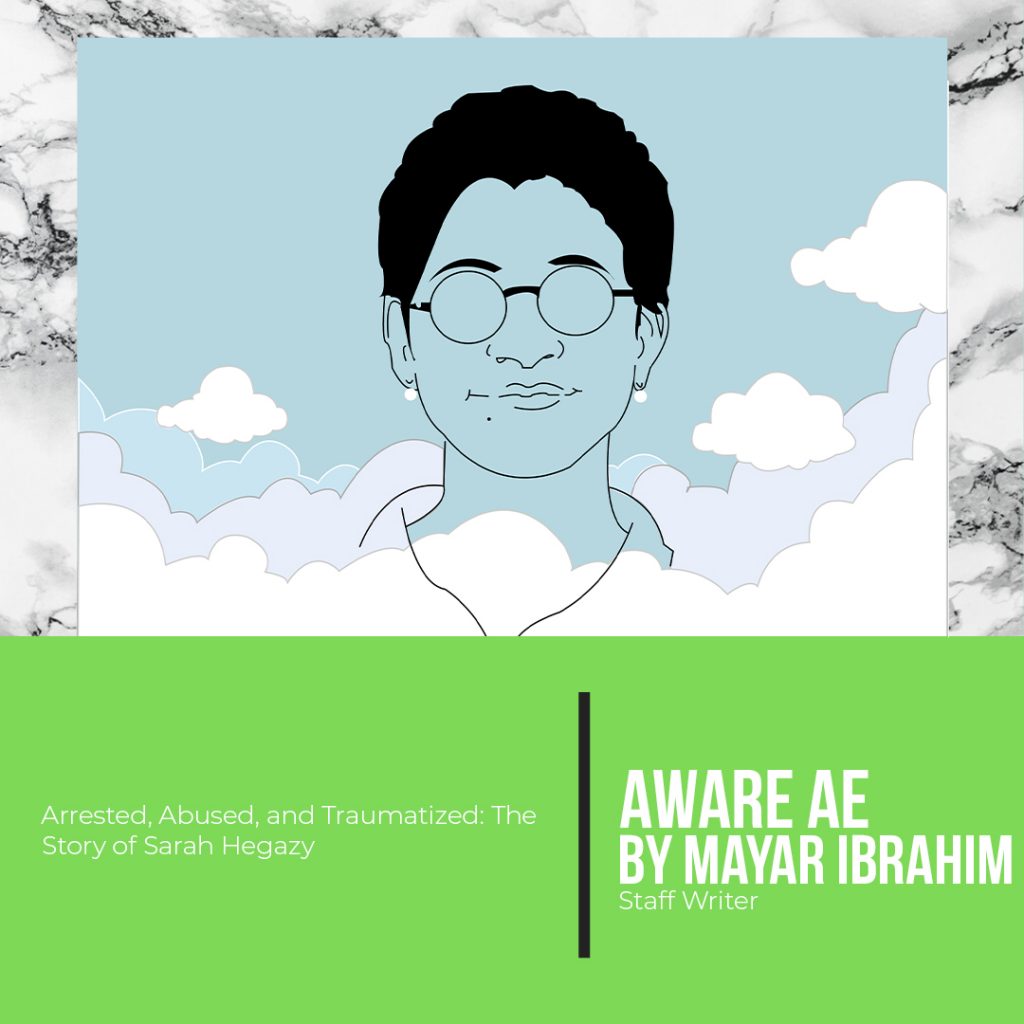“To the world: You were cruel to a great extent, but I forgive,” Sarah Hegazy wrote. Depression and anxiety were interlinked mental health struggles Sarah Hegazy had gone through before she made the decision to take her own life. It all started when she went to a Mashrou’ Leila concert in Egypt and raised a rainbow flag.
What happened?
On the 17th of October in 2017, Sarah Hegazy was arrested for raising the flag at the concert and had been the only woman arrested when the Egyptian authorities began their three-week anti-gay crackdown. Hegazy was a 30-year-old activist who had spent three months in jail where she was abused by the Egyptian authorities. When she was taken to prison, she was blindfolded and put into an interrogation room where Hegazy heard the people around her groaning in pain. During an interview, Hegazy said that she had been administered electric shocks when she was in custody.
After her release, Hegazy fled to Canada in an attempt to gain asylum, not able to return to Egypt once more. Once she arrived in Canada, Hegazy struggled with depression and PTSD as a result of her experience in Egypt. During her time in Canada, Hegazy also suffered from panic attacks and, due to the strength of her anxiety, she ultimately formed a stutter.
Hegazy spent a total of 18 months in Canada in exile away from her family and the life that she had grown accustomed to in Egypt. During those 18 months, Hegazy struggled with suicidal thoughts for a long time. In her suicide note, she asked her loved ones for forgiveness and told the world that she has forgiven them for their cruelty.
The Arab LGBTQ+ Community
In the Arab region, homosexuality is predominantly illegal, sometimes punishable by death. This is a result of the cultural traditions and religious laws that dominate the region. Minorities, such as the LGBTQ+ community, are one of the many groups that find themselves developing mental struggles as they go through their lives as a result of discrimination, prejudice, and phobias from larger groups. In the Middle East, it is common for members of the LGBTQ+ community to choose to stay “closeted” and keep a low profile to avoid persecution, trauma, and abuse and to abide by the laws of their region. Unfortunately, this can result in further trauma, mental illness, and, ultimately, suicide – Sarah Hegazy is only one an example of this.
International Response
Following Hegazy’s suicide, the news circulated all over the globe. People all over the world mourned her loss and paid tribute to her death. While the issue was definitely controversial in some regions given its nature, several human rights advocates expressed their concerns in every way that they could. Many are concerned over the fact that living in such fear is not a way to truly live. Despite what tradition says, these advocates believe that no one should be tortured to the point of suicide. Activists all over the world spread the hashtag
#RaiseTheFlagForSarah to pay tribute to her. In addition, Mashrou’ Leila’s lead singer Hamed Sinno, who is openly gay, paid tribute to Hegazy with a song.
In addition to these responses comes the negativity. Due to Hegazy’s openness regarding her sexuality, even after her passing many people in the Arab world have reacted in outrage flooding the comments section of her last Instagram post and posting videos online expressing their opposing attitudes and beliefs towards the concept of homosexuality in the Middle East and in Religion.
With an issue this controversial, especially in the Arab region, there is no way to tell how future incidents will be dealt with. It is possible, however, that international pressure may have a significant impact on governments in the region. Despite it all, Arab LGBT activists are still in fear. Nevertheless, they take the story of Sarah Hegazy as inspiration to continue to fight for their rights.
